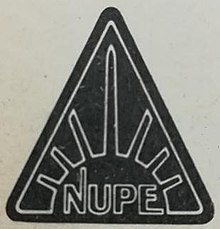A trade union, often simply referred to as a union, is an organization of workers who have come together to achieve common goals, such as protecting the integrity of their trade, improving safety standards, and attaining better wages, benefits, and working conditions through the increased bargaining power wielded by solidarity among workers. Trade unions typically fund the formal organization, head office, and legal team functions of the trade union through regular fees or union dues. The delegate staff of the trade union representation in the workforce are made up of workplace volunteers who are appointed by members in democratic elections.

Unison, stylised as UNISON, is the largest trade union in the United Kingdom. UNISON's members work predominantly in public services, including local government, education, health and outsourced services.

The Transport and General Workers' Union was one of the largest general trade unions in the United Kingdom and Ireland – where it was known as the Amalgamated Transport and General Workers' Union (ATGWU) to differentiate itself from the Irish Transport and General Workers' Union – with 900,000 members. It was founded in 1922 and Ernest Bevin served as its first general secretary.

Trade Unions in India are registered and file annual returns under the Trade Union Act (1926). Statistics on Trade Unions are collected annually by the Labour Bureau of the Ministry of Labour, Government of India. As per the latest data, released for 2012, there were 16,154 trade unions which had a combined membership of 9.18 million. The Trade Union movement in India is largely divided along political lines and follows a pre-Independence pattern of overlapping interactions between political parties and unions. The net result of this type of system is debated as it has both advantages and disadvantages. BMS is the largest trade union of India.
The Canadian Union of Public Employees is a Canadian trade union serving the public sector – although it has in recent years organized workplaces in the non-profit and para-public sector as well. CUPE is the largest union in Canada, representing some 700,000 workers in health care, education, municipalities, libraries, universities, social services, public utilities, transportation, emergency services and airlines. Over 60% of CUPE's members are women, and almost a third are part-time workers. CUPE is affiliated with the Canadian Labour Congress and is its greatest financial contributor.

Rodney Kevan Bickerstaffe was a British trade unionist. He was General Secretary of the National Union of Public Employees (1982–1993) and UNISON (1996–2001), Britain's largest trade union at the time. He later became president of the UK National Pensioners Convention (2001–2005).
The National and Local Government Officers' Association was a British trade union representing mostly local government "white collar" workers. It was formed in 1905 as the National Association of Local Government Officers, and changed its full name in 1952 while retaining its widely used acronym, NALGO. By the late 1970s it was the largest British white collar trade union, with over 700,000 members. It was one of three unions which combined to form UNISON in 1993.
The Workers' Union was a general union based in the United Kingdom, but with some branches in other countries. During the 1910s, it was the largest general union in the UK, but it entered a rapid decline in the 1920s, and eventually became part of the Transport and General Workers' Union (TGWU).

The Association of Scientific, Technical and Managerial Staffs (ASTMS) was a British trade union which existed between 1969 and 1988.

The Association of Professional, Executive, Clerical and Computer Staff (APEX) was a British trade union which represented clerical and administrative employees.
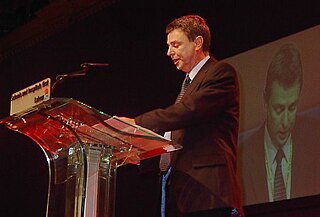
David Prentis is a British trade unionist and former General Secretary of UNISON, the United Kingdom's largest trade union. He was originally elected in 2000. He was re-elected in March 2005, with 77% of the vote, in 2010, and in 2015.

The Modern Records Centre (MRC) is the specialist archive service of the University of Warwick in Coventry, England, located adjacent to the Central Campus Library. It was established in October 1973 and holds the world's largest archive collection on British industrial relations, as well as archives relating to many other aspects of British social, political and economic history.
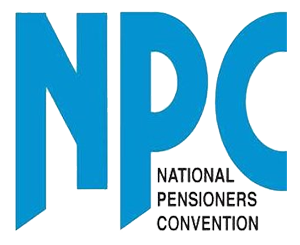
The National Pensioners Convention (NPC) is the principal organisation representing pensioners in the United Kingdom. It is made up of around 1,000 bodies representing 1.5 million members, organised into federal regional units.
The Municipal Employees' Association was a trade union representing local government workers in the United Kingdom.
A public-sector trade union is a trade union which primarily represents the interests of employees within public sector or governmental organizations.
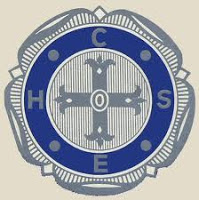
The Confederation of Health Service Employees (COHSE) was a United Kingdom trade union representing workers primarily in the National Health Service.
Stanley Little was the founding National President of the Canadian Union of Public Employees from 1963 to 1975. He was also the President of the National Union of Public Service Employees from 1961 to 1963.

The Trades Union Congress (TUC) is a national trade union centre, a federation of trade unions in England and Wales, representing the majority of trade unions. There are 48 affiliated unions, with a total of about 5.5 million members. The current General Secretary is Frances O'Grady.

The Union of Municipal and State Workers was a trade union representing public sector workers in Germany.
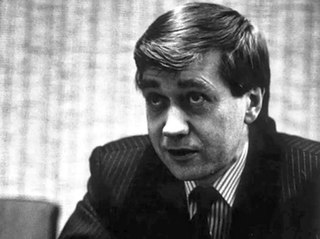
Roger Poole was a British trade union official and mediator. After a variety of early jobs he worked for the National Union of Public Employees (NUPE), including during the disputes of the 1978-9 Winter of Discontent. Poole represented five unions during the 1989–90 British ambulance strike and won a 16.9% pay settlement, a rare victory in the Thatcher era. He afterwards negotiated a merger with the National and Local Government Officers' Association and the Confederation of Health Service Employees to form Unison, for which he served as assistant general secretary. After retirement from the unions Poole served on the Northern Ireland Parades Commission and mediated in industrial disputes. He was also a visiting lecturer at Warwick University.
